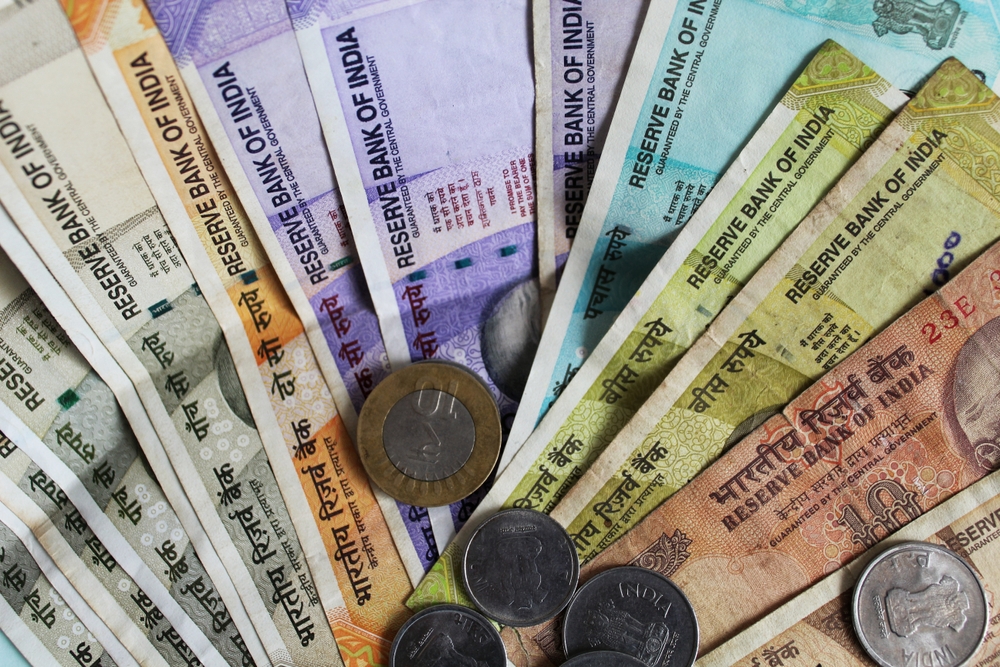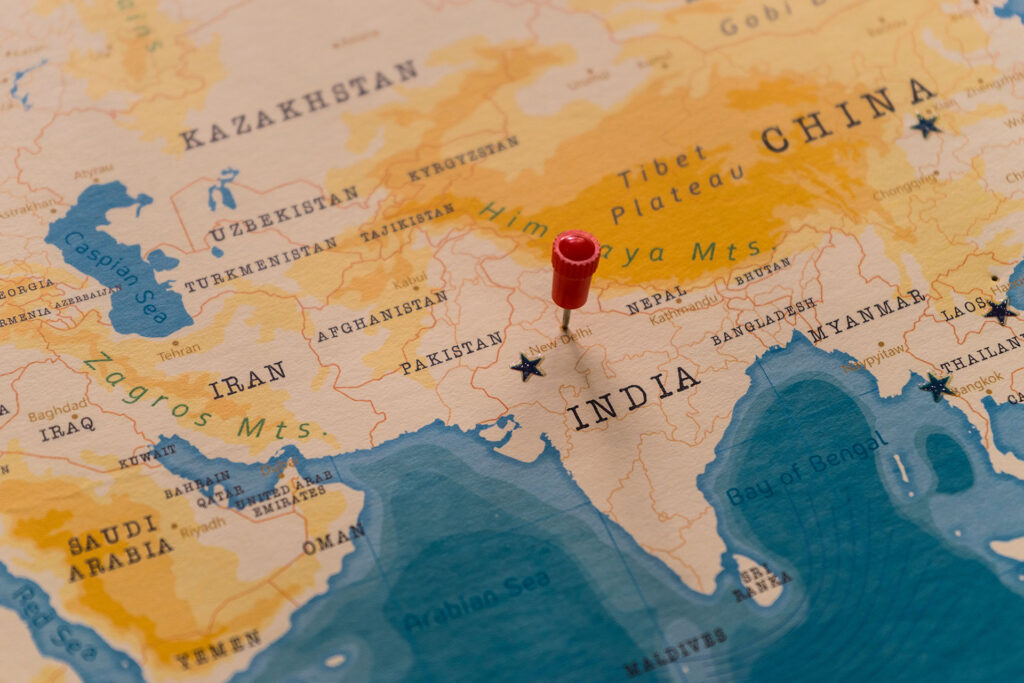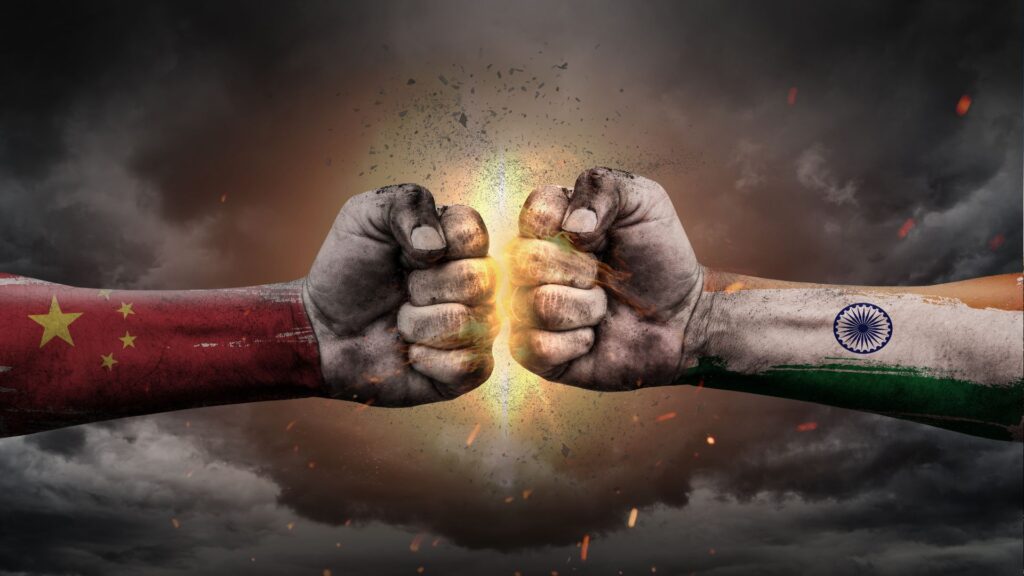In 2023, shifting balances of geopolitical power appear to have become the norm. The world is painfully witnessing both the breadth and the limits of US political and military power in both Ukraine and Israel. Washington’s “best-laid schemes” — to quote Robert Burns — continue to produce a frustrating pattern marked by the failure to achieve stated objectives, followed by months and sometimes years of trying to dig itself out of the latest hole. With the center of gravity of the global economy now sitting clearly on the eastern side of the Eurasian continent, all eyes are turning to China and India as pundits try to imagine the shape of the new world order.
China has its own internal tensions and uncertainties. In contrast with the dominant hegemon, the US, China sits comfortably outside the morass of the two highly Americanized wars on the eastern edge of the Western world.
India, now the most populous nation, boasts a dynamic economy, which nevertheless represents only a fifth of that of China’s in GDP and 40% in PPP. At the same time, India is credited with a growth rate in 2023 of 7% compared to China’s 3%.
Liu Zongyi, an expert in India–China relations, writing for the Chinese publication The Global Times, predictably offers a less optimistic prognosis for India. Concerned that India is aggressively trying to replace China at the core of the global industrial chain, he comforts himself by citing “various constraints holding back the Indian domestic economy.”
Liu innovates by offering a full-fledged “replacement theory” when he claims that India is intent on “replacing Chinese products with Indian products or products from other countries, replacing Chinese capital with Indian capital and capital from other countries, and replacing the cooperation model between China and the West with the cooperation model between India and the West.”
Liu then explains why he believes India cannot succeed. After signaling India’s slow pace of industrial development and what he sees as a relatively unskilled labor force in comparison to China, he adds another consideration. “Western enterprises are aware that although India is currently choosing to cooperate with Western companies in order to replace China’s position in the global supply chain, Western companies will still face setbacks in India when the domestic industry in India develops to a certain extent. This is because Indian monopolistic capitalists will not allow Western companies to make a lot of money in the Indian market.”
Today’s Weekly Devil’s Dictionary definition:
Monopolistic capitalists:
Capitalists. (Even those who do not or cannot have a monopoly aspire to monopoly.)
Contextual note
Chinese analysts have good reason to be worried when speaking about “the global supply chain.” Over the past three decades, as the world moved towards what everyone accepted as the norm of “globalization,” no other nation was as effective as China in crafting the global supply chain to its own needs. In practical terms, China assumed a role far more “indispensable” than even the US, who famously claimed and still claims the title of “indispensable nation.”
But the times really are “a-changin’,” as Bob Dylan once put it. Already, the higher cost of Chinese labor has affected China’s position at the core of the manufacturing supply chain. The Middle Kingdom’s growth rate has radically declined and its economy is now faced with unanticipated and seemingly unresolvable crises, notably in its real estate markets.
India possesses several obvious advantages with respect to China, including a positive image as “the world’s biggest democracy” and official use of the English language. Both of those features, though not necessarily as solid as some might suppose, facilitate India’s global relationship-building, especially within the Western world.
India does sit alongside China at the core of a now expanding grouping of Brazil, Russia, India, China and South Africa (BRICS) that is seriously threatening to mount a challenge to the US dollar and thereby reconfigure international trade. However, it is important to note that India has successfully resisted China’s effort, embodied by Xi Jinping’s Belt and Road Initiative, to dominate and unilaterally manage the evolution of Asian and indeed global infrastructure.
So how well founded is Liu’s observation that “Indian monopolist capitalists will not allow Western companies to make a lot of money in the Indian market?” The claim does have some merit when compared with the Chinese system. China has achieved a paradoxical success by massively attracting US and European capitalists to its historically expanding markets. Those same capitalists officially deplore China’s authoritarian system. But they couldn’t be insensitive to the fact that, in a matter of decades, China has lifted 800 million people out of poverty, producing the world’s fastest-growing consumer economy.
Liu is right to mention the factor of monopoly. Unlike open capitalist economies, for China the practice of monopoly is a privilege of the state, which guides the economy and sets the rules by which foreign investors can operate in its markets. In contrast, Western companies vie at home for a position as private monopolies. They are driven by the goal of “owning” their respective marketplaces and are skilled at keeping competition at bay. They strive to be monopolists in any lucrative marketplace, which they achieve at home but fail to do so in China.
Western Capitalism has become a monopoly culture, which is one aspect of what economist and former finance minister of Greece Yanis Varoufakis calls “technofeudalism.” What a monopolizing company can’t accomplish through the unique quality of its products, it achieves through the science of branding combined with the logic of financialized capitalism. Thanks to accumulated and well-managed financial clout, monopolies consolidate their marketplace by either buying or crushing their competition. That has become the unwritten “law of the land,” a law everyone has learned to respect.
Liu is right. India does count a number of powerful monopolistic capitalists, but the role they play on the global stage will always be ambiguous. For the moment, India is caught between the logic of the financialized West — whose banks and financial institutions along with its governments still call the shots — and the centralized, authoritarian model of China. India’s monopolists lack the ability to compete on the same scale as Western monopolies like Amazon, Microsoft and Facebook, which increasingly function as platforms that provide an exclusive space within which others operate. And the Indian state, for complex historical and ideological reasons, simply lacks the means to control and literally monopolize its economy the way China has done.
Historical note
The capitalist West has always had a problem with monopoly. In Adam Smith’s 18th-century vision of a world in which “wealth of nations” was ensured by competing businesses, the very idea of monopoly contradicted the core logic of his theory. Success and progress resulted from competition, not control. But anyone who runs a business, especially in today’s technofeudal culture, dreams of achieving control of the marketplace. Peter Thiel unambiguously says so in his book Zero to One.
Thomas Piketty, a far deeper thinker and one of the towering economists of our time, examines monopolies in his book Capitalism and Ideology. He points out that the English economy in the 18th century already evinced a strong monopolistic trend. What better example to illustrate the trend than the East India Company? The one economy, Piketty tells us, that functioned pretty efficiently in conformity with Adam Smith’s principles at that time was China’s!
Smith’s ideal supposed that capitalists would exercise control in a reasonably self-interested, rather than self-obsessed way. But once one accepts Friedrich Hayek’s notion of the primacy of shareholder interest, it is only natural that capitalists see monopoly as the ultimate goal, if not an ideal.
So, is India caught between a rock and a hard place from which it cannot escape? In reality, the entire geopolitical and geo-economic landscape is undergoing a radical transformation that may reserve a few surprises for the pundits, both Western and Chinese. Anyone who has doubts about how many twists and turns history is now taking should ponder yesterday’s headline from the South China Morning Post: “Iran says it hopes to work with China to de-escalate Israel-Gaza war.”
The very idea of Iran stepping up alongside China to help resolve the war in Israel, Iran’s sworn enemy, would have seemed absurd only a few months ago and sounds absurd even today. In the meantime, China has negotiated peace between Iran and Saudi Arabia, and both of those countries may be about to join BRICS. Does this adumbrate new combinations of geopolitical cooperation and economic creativity made possible by the BRICS alliance?
India faces an almost impossible challenge in finding its place in the new emerging world order precisely because it is so difficult to predict. For once, the Pentagon’s jargon about a volatile, uncertain, complex and ambiguous (VUCA) world rings true. Perhaps our Indian friends could attend our VUCA workshops to look around the corner to see what may lie ahead. 😉
*[In the age of Oscar Wilde and Mark Twain, another American wit, the journalist Ambrose Bierce produced a series of satirical definitions of commonly used terms, throwing light on their hidden meanings in real discourse. Bierce eventually collected and published them as a book, The Devil’s Dictionary, in 1911. We have shamelessly appropriated his title in the interest of continuing his wholesome pedagogical effort to enlighten generations of readers of the news. Read more of Fair Observer Devil’s Dictionary.]
The views expressed in this article are the author’s own and do not necessarily reflect Fair Observer’s editorial policy.
Support Fair Observer
We rely on your support for our independence, diversity and quality.
For more than 10 years, Fair Observer has been free, fair and independent. No billionaire owns us, no advertisers control us. We are a reader-supported nonprofit. Unlike many other publications, we keep our content free for readers regardless of where they live or whether they can afford to pay. We have no paywalls and no ads.
In the post-truth era of fake news, echo chambers and filter bubbles, we publish a plurality of perspectives from around the world. Anyone can publish with us, but everyone goes through a rigorous editorial process. So, you get fact-checked, well-reasoned content instead of noise.
We publish 2,500+ voices from 90+ countries. We also conduct education and training programs
on subjects ranging from digital media and journalism to writing and critical thinking. This
doesn’t come cheap. Servers, editors, trainers and web developers cost
money.
Please consider supporting us on a regular basis as a recurring donor or a
sustaining member.
Will you support FO’s journalism?
We rely on your support for our independence, diversity and quality.










Comment